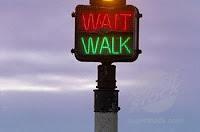 Every 3-4 weeks there an alarming article about obesity in Scotland. Allegedly 6 out 10 women in Scotland are either obese or over weighed. Many research is being made to examine the cause of this plague, many financial resource are used to tackle the problem. Many politicians discuss the program and millions are spend on government programmes to fight obesity.
Every 3-4 weeks there an alarming article about obesity in Scotland. Allegedly 6 out 10 women in Scotland are either obese or over weighed. Many research is being made to examine the cause of this plague, many financial resource are used to tackle the problem. Many politicians discuss the program and millions are spend on government programmes to fight obesity.The most frightening thing about this topic is that nobody seems to have a clue about what is happening and why! Despite millions of pounds spend on researches nobody knows why is the obesity level is so high and what to with it.
My pieces of advice for researchers – go to a shop and have a look at prices.
Quite recently I went to a shop to buy some veg. I paid 75 pence for 1 pepper. On the other shelf there was a massive multi pack of crisps. The bag consisted of 28 smaller bags of crisps cost 98 p!
Shocking?
Yes, multi packs... the other day I fancied an ice cream. I hardly ever eat sweets and when I buy them I always buy the smallest possible pack. So I went to a shop to buy one ice cream and I ended up with box of my favourite ice cream because I could not buy one. I had to buy one box. I ate one ice cream, the remaining ones are still in my freezer. At least I have a supply of ice cream for next year or so. If they don't run of date...
So maybe the are two reason of obesity – first prices of junk food which is cheap as chips and lack of choice in terms of quantities.
I don’t blame companies for their will to earn money, nor Britons for saving money when they buy multi packs. I just ask – why I cannot have a choice whether I want to buy one ice cream. Oh yeah I have choice – it’s either nothing or yearly supply of ice cream.



 Hi people! In today’s episode of our tour around Weird I mean Great Britain we shall focus on something that is not weird nor strange but on something that is normal. What I mean by normal is that things are as they should be.
Hi people! In today’s episode of our tour around Weird I mean Great Britain we shall focus on something that is not weird nor strange but on something that is normal. What I mean by normal is that things are as they should be.



